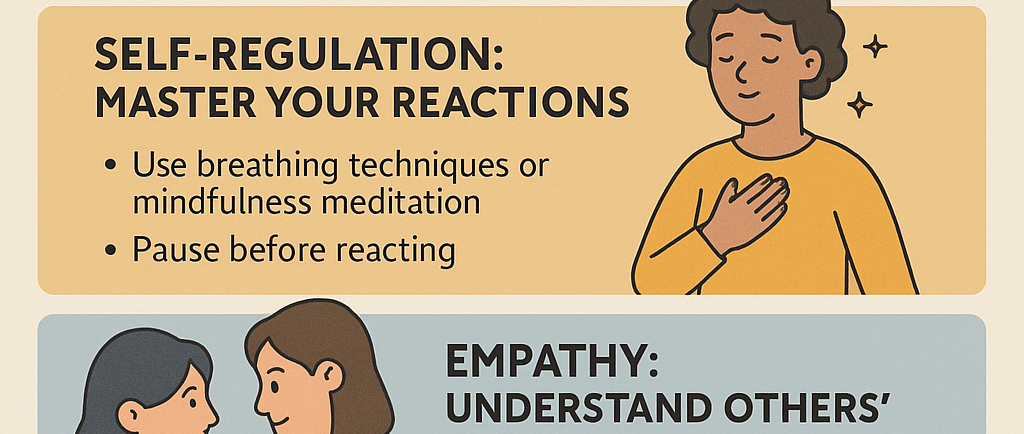How to Improve Your Emotional Quotient (EQ) in 500 Words
Blog post description.


In today’s fast-paced world, intelligence alone isn’t enough to succeed. Emotional Quotient (EQ)—also known as Emotional Intelligence—is just as important as IQ, if not more. EQ refers to your ability to recognize, understand, manage, and influence emotions—both your own and others’. Improving EQ can lead to better relationships, stronger leadership, reduced stress, and greater personal and professional satisfaction.
Here’s how you can improve your EQ step by step:
1.Self-Awareness: Know Yourself First
The foundation of emotional intelligence is self-awareness. This means being in tune with your emotions and understanding how they affect your thoughts and behavior. Start by checking in with yourself daily. Ask:
How am I feeling right now?
Why do I feel this way?
How is this emotion affecting my actions?
Tip: Keep a journal. Writing helps uncover emotional patterns and deepens self-reflection.
2.Self-Regulation: Master Your Reactions
Once you’re aware of your emotions, the next step is managing them. Self-regulation doesn’t mean suppressing feelings; it means expressing them appropriately. For example, instead of shouting when angry, take a few deep breaths, pause, and respond calmly.
Practice:
Use breathing techniques or mindfulness meditation to stay grounded.
Pause before reacting—especially in emotionally charged situations.
3.Empathy: Understand Others’ Emotions
Empathy is the ability to feel what someone else is feeling. It helps you build trust, resolve conflicts, and connect deeply with others.
Ways to build empathy:
Listen actively without interrupting or judging.
Try to see situations from others’ perspectives.
Ask open-ended questions like “How did that make you feel?”
4.Social Skills: Build Stronger Relationships
High EQ individuals communicate clearly, listen well, and handle conflict with grace. Strengthening your social skills can help you connect more easily and influence others positively.
Improve social EQ by:
Practicing active listening
Being assertive without being aggressive
Expressing appreciation and giving feedback constructively
5.Motivation: Fuel Your Inner Drive
Emotionally intelligent people are often self-motivated. They set goals, stay optimistic, and bounce back from setbacks.
To increase emotional motivation:
Set meaningful goals and track your progress.
Replace negative self-talk with encouraging thoughts.
Surround yourself with positive influences.
Final Thoughts
Improving your emotional quotient is a lifelong journey, not a quick fix. Start small—reflect more, listen better, and respond mindfully. Over time, your relationships will deepen, your leadership will strengthen, and your mental well-being will improve.
As psychologist Daniel Goleman, who popularized the concept of EQ, said:
“What really matters for success, character, happiness and lifelong achievements is a definite set of emotional skills.”
Start building those skills today.
